Table of Contents
Come join us now, and enjoy playing your beloved music and browse through great scores of every level and styles!
Can’t find the songbook you’re looking for? Please, email us at: sheetmusiclibrarypdf@gmail.com We’d like to help you!
Remembering Fats Waller, born on this day in 1904 (1904-1943).
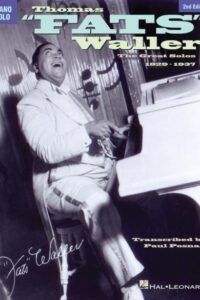
Best Sheet Music download from our Library.
Fats Waller: The Jovial Genius of Jazz
Thomas Wright “Fats” Waller (1904–1943) was one of the most influential and beloved figures in jazz history. A virtuoso pianist, charismatic singer, and prolific composer, Waller left an indelible mark on the development of stride piano, early jazz, and swing. His infectious humor, technical brilliance, and innovative harmonic approach made him a standout performer and recording artist during the Harlem Renaissance and the Swing Era.
This article explores Waller’s life, musical style, harmonic innovations, licks, influences, legacy, major works, filmography, discography, and links to documentaries and performances of his most famous compositions.

Please, subscribe to our Library.
If you are already a subscriber, please, check our NEW SCORES’ page every month for new sheet music. THANK YOU!
Biography
Early Life (1904–1922)
Fats Waller was born on May 21, 1904, in New York City. His father, Edward Waller, was a Baptist preacher, and his mother, Adeline Lockett Waller, played piano and organ in church. Young Thomas began playing piano at six and was soon accompanying his mother at church services.
By his teens, Waller had dropped out of school to pursue music full-time. He studied under legendary stride pianists James P. Johnson and Willie “The Lion” Smith, who recognized his prodigious talent.
Rise to Fame (1922–1934)
Waller began recording in the early 1920s, cutting piano rolls and making his first records in 1922. His early compositions, such as “Squeeze Me” (1925) and “Handful of Keys” (1929), showcased his stride piano mastery.
In 1927, Waller made his first major recordings for Victor Records, where he would remain a star artist for the rest of his career. His partnership with lyricist Andy Razaf produced some of his most enduring songs, including “Ain’t Misbehavin’” (1929) and “Honeysuckle Rose” (1929).
Peak Years and Radio Stardom (1934–1943)
By the mid-1930s, Waller was a household name, thanks to his radio broadcasts and recordings with his band, Fats Waller and His Rhythm. His humorous asides and exuberant performances made him a favorite among audiences.
Tragically, Waller’s life was cut short by pneumonia on December 15, 1943, while traveling back from a Hollywood engagement. He was only 39 years old.
Browse in the Library:
Or browse in the categories menus & download the Library Catalog PDF:
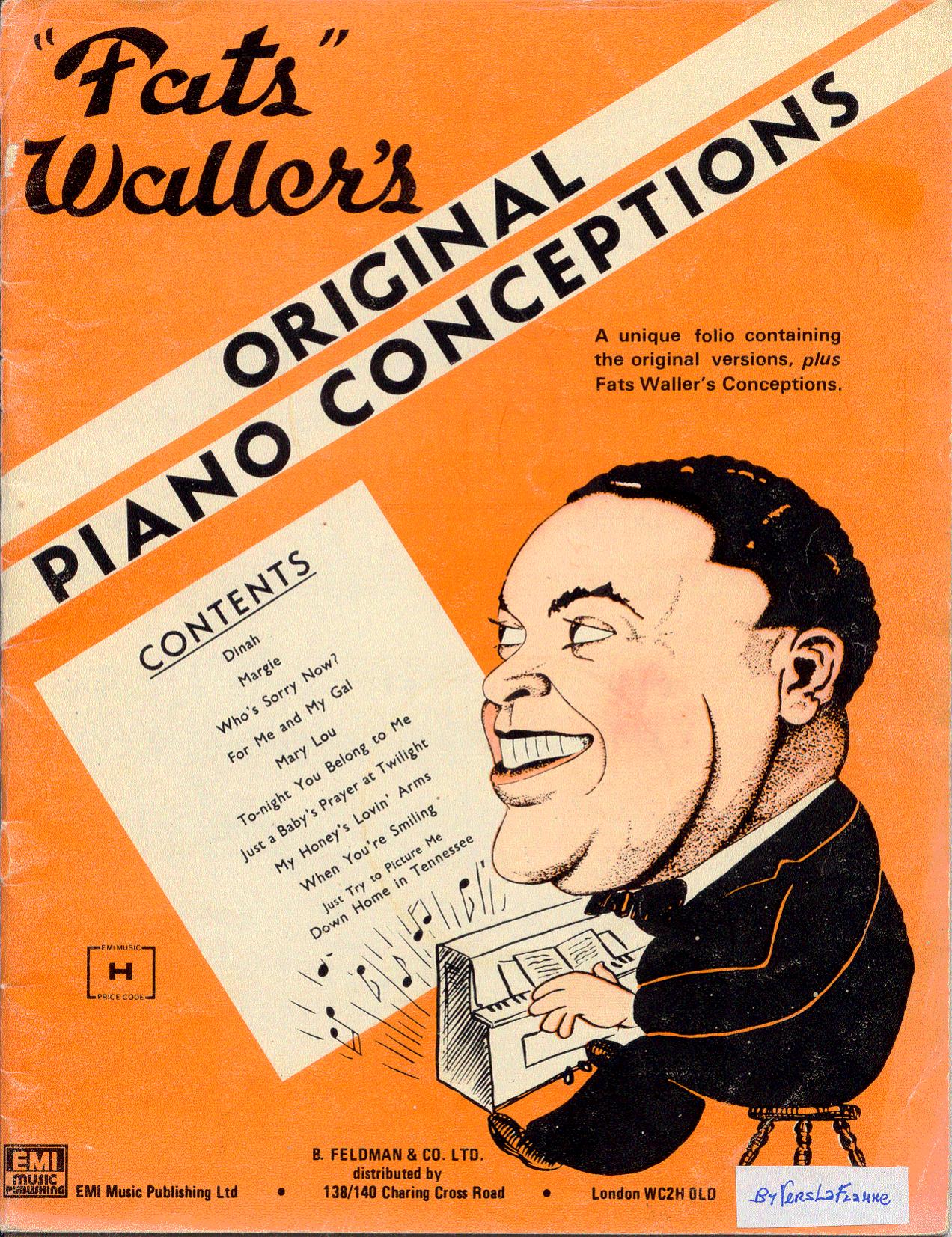
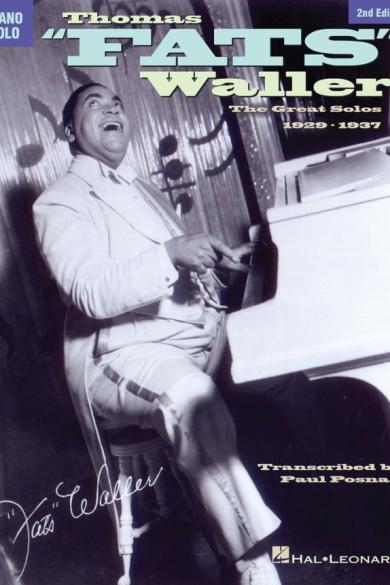
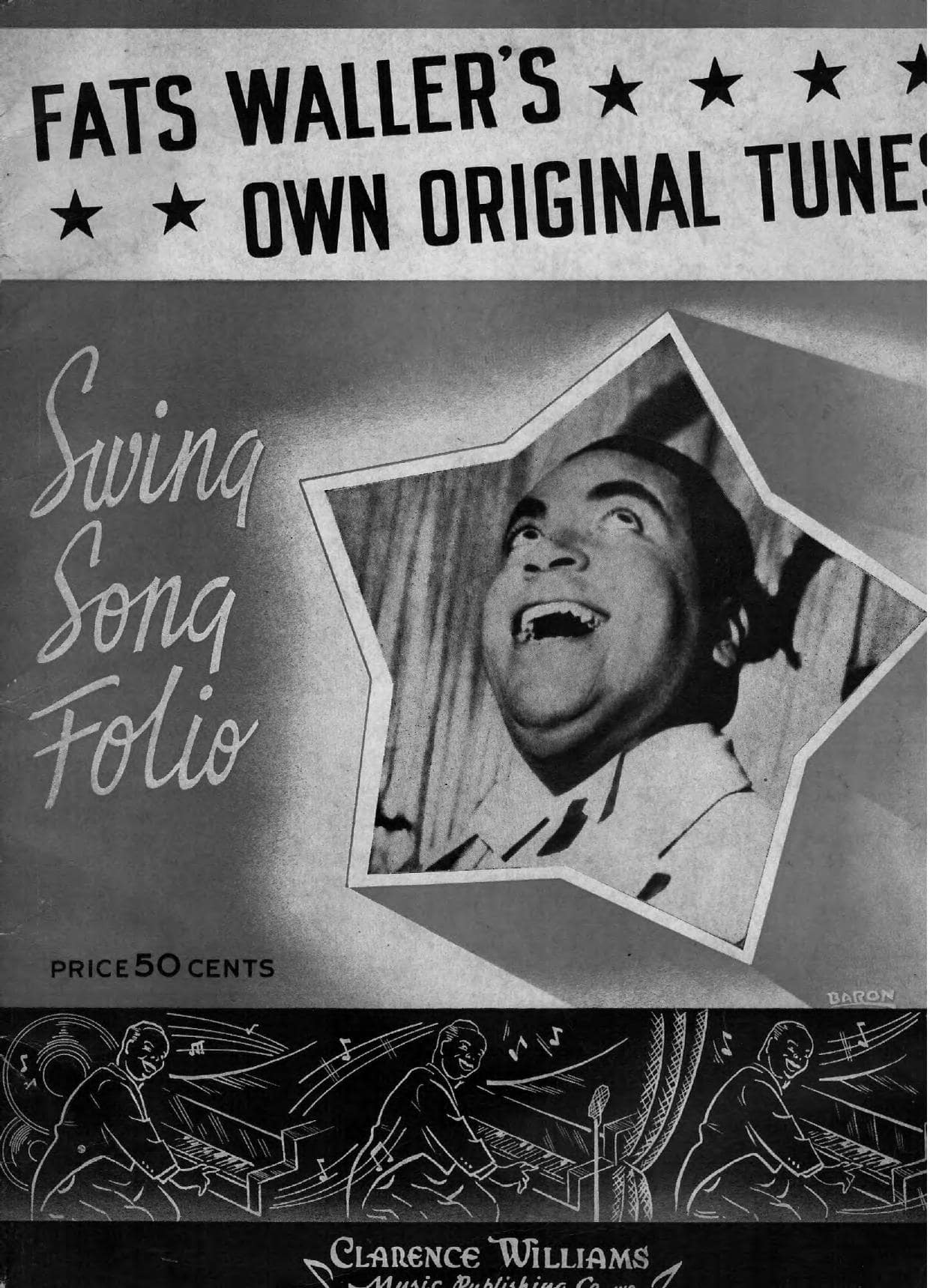
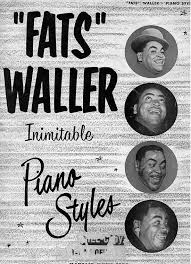
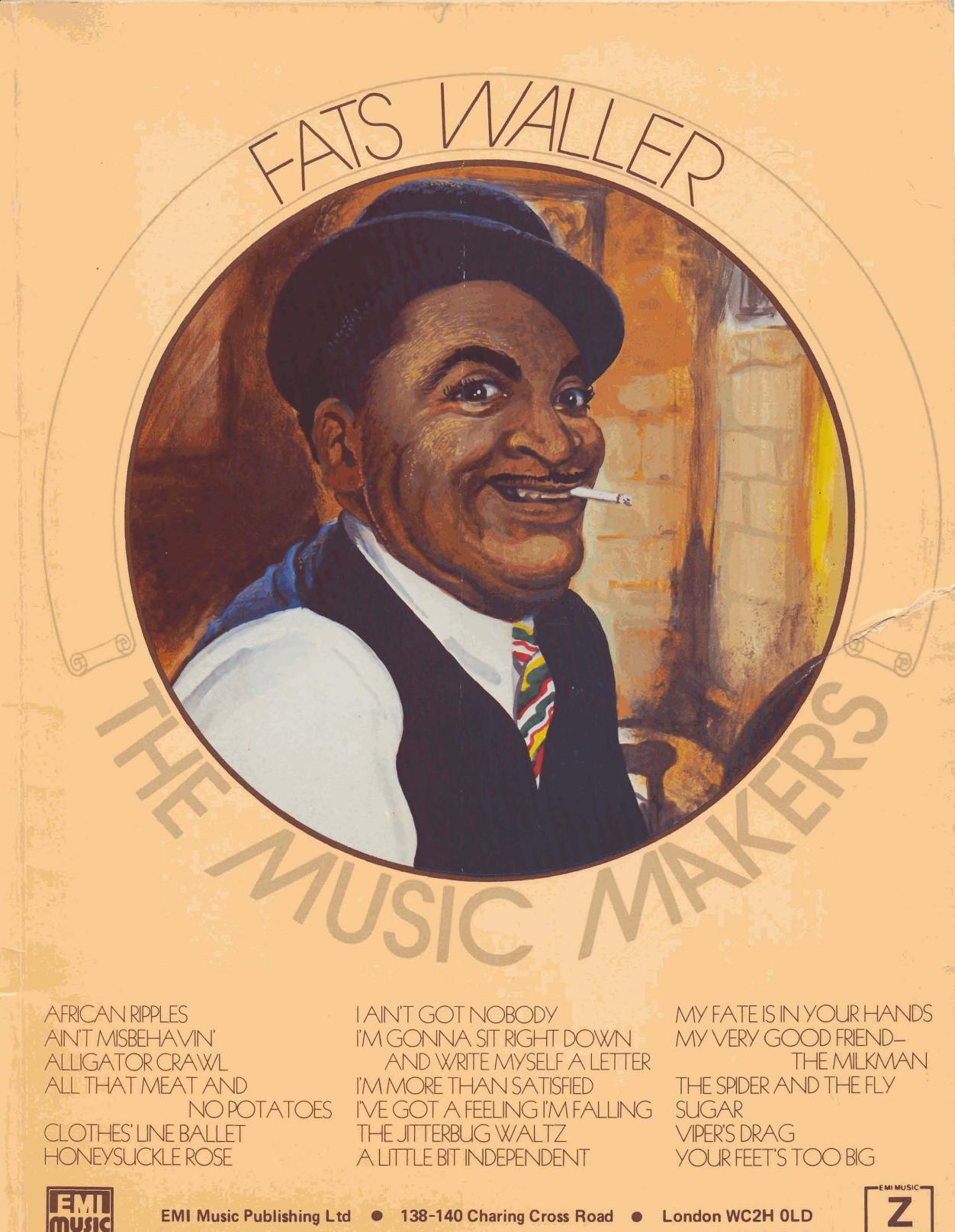
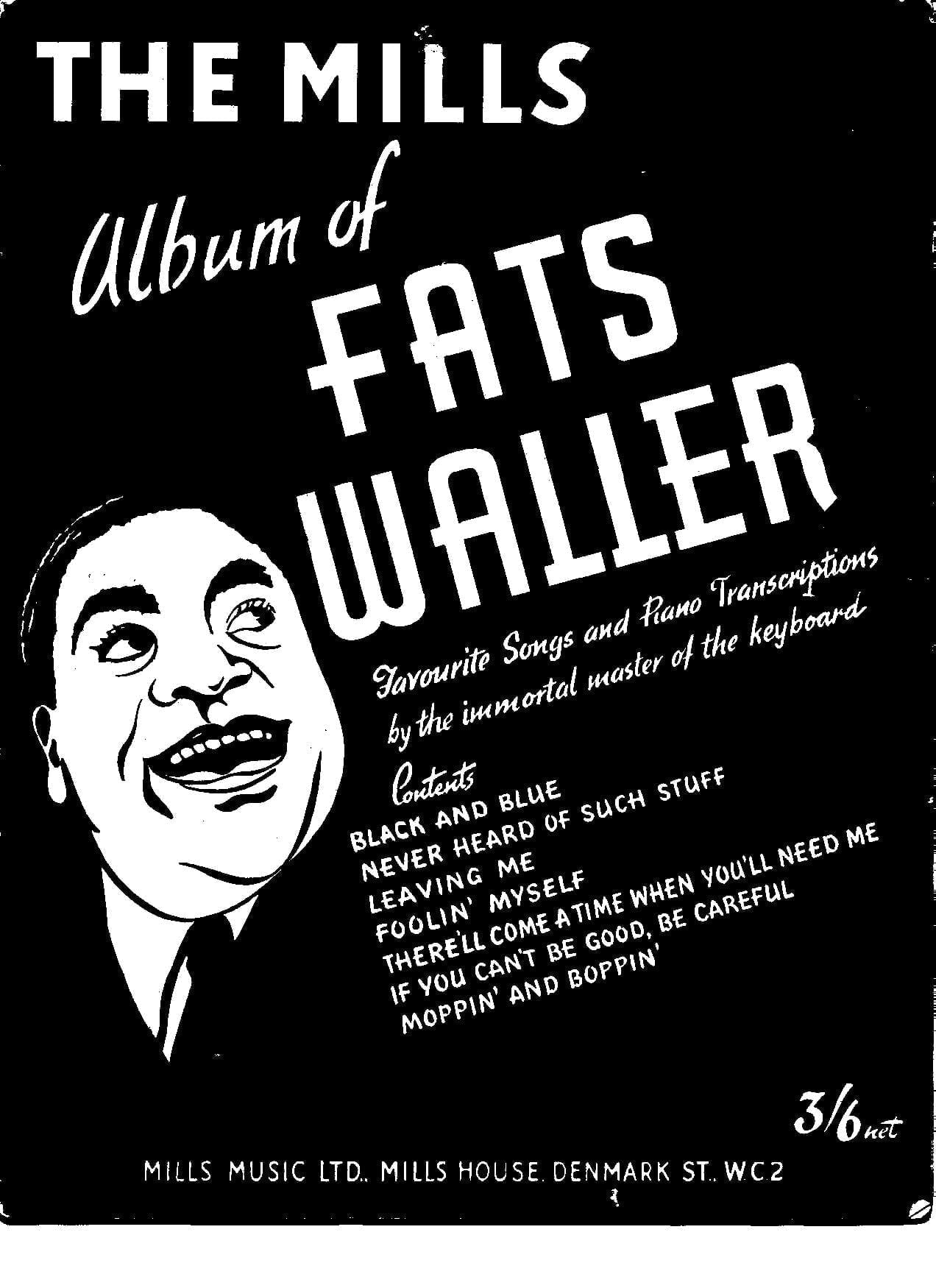
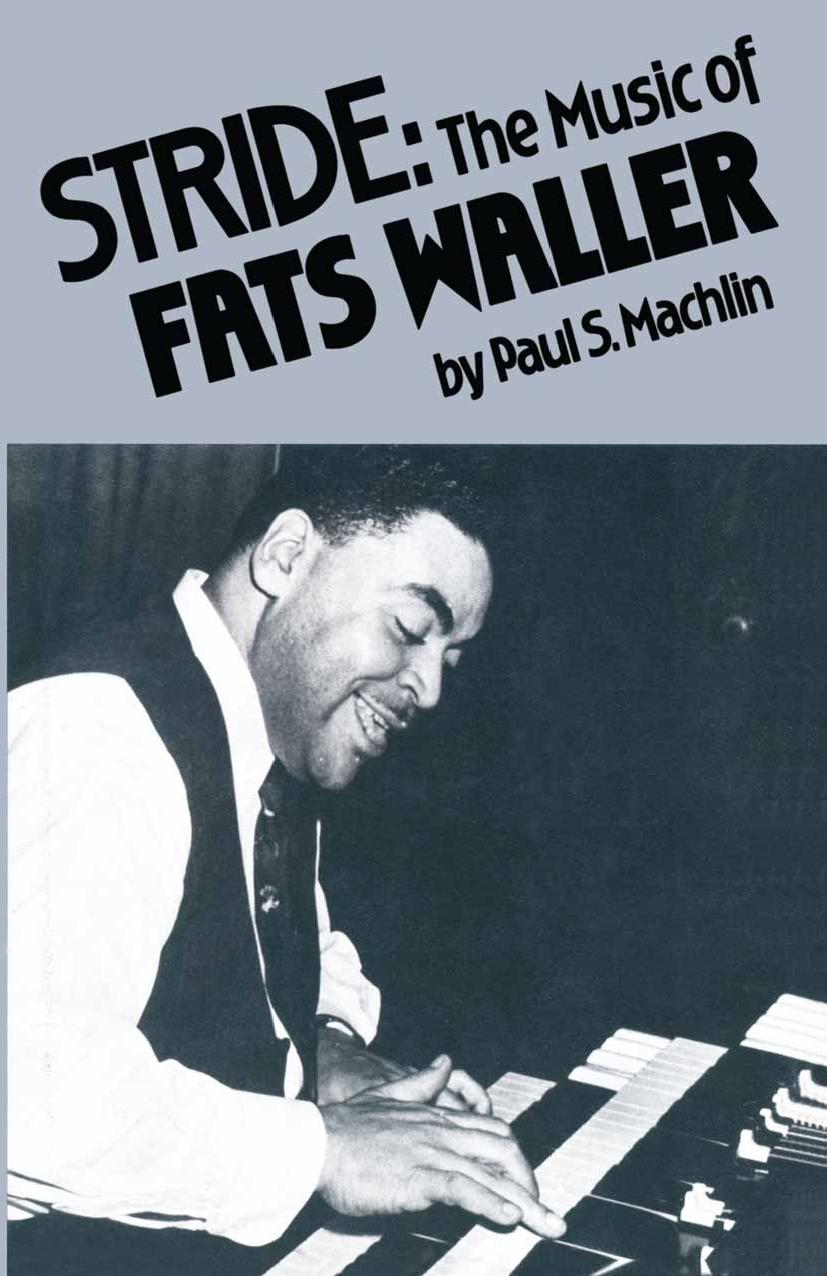
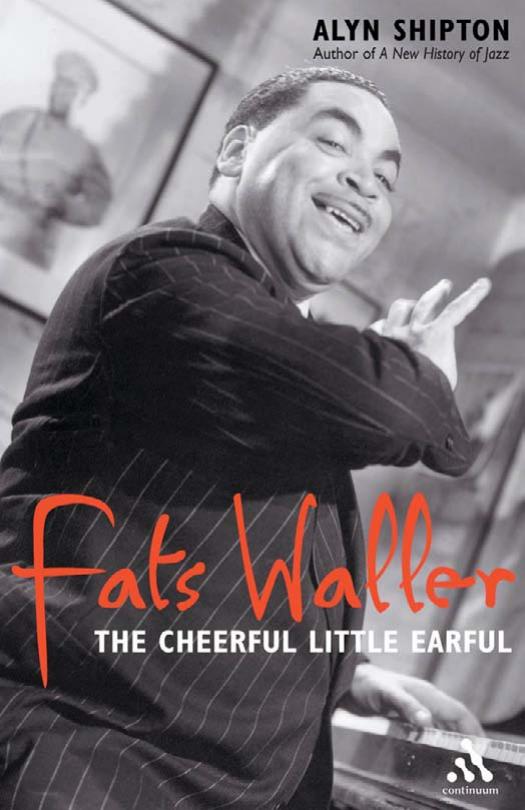
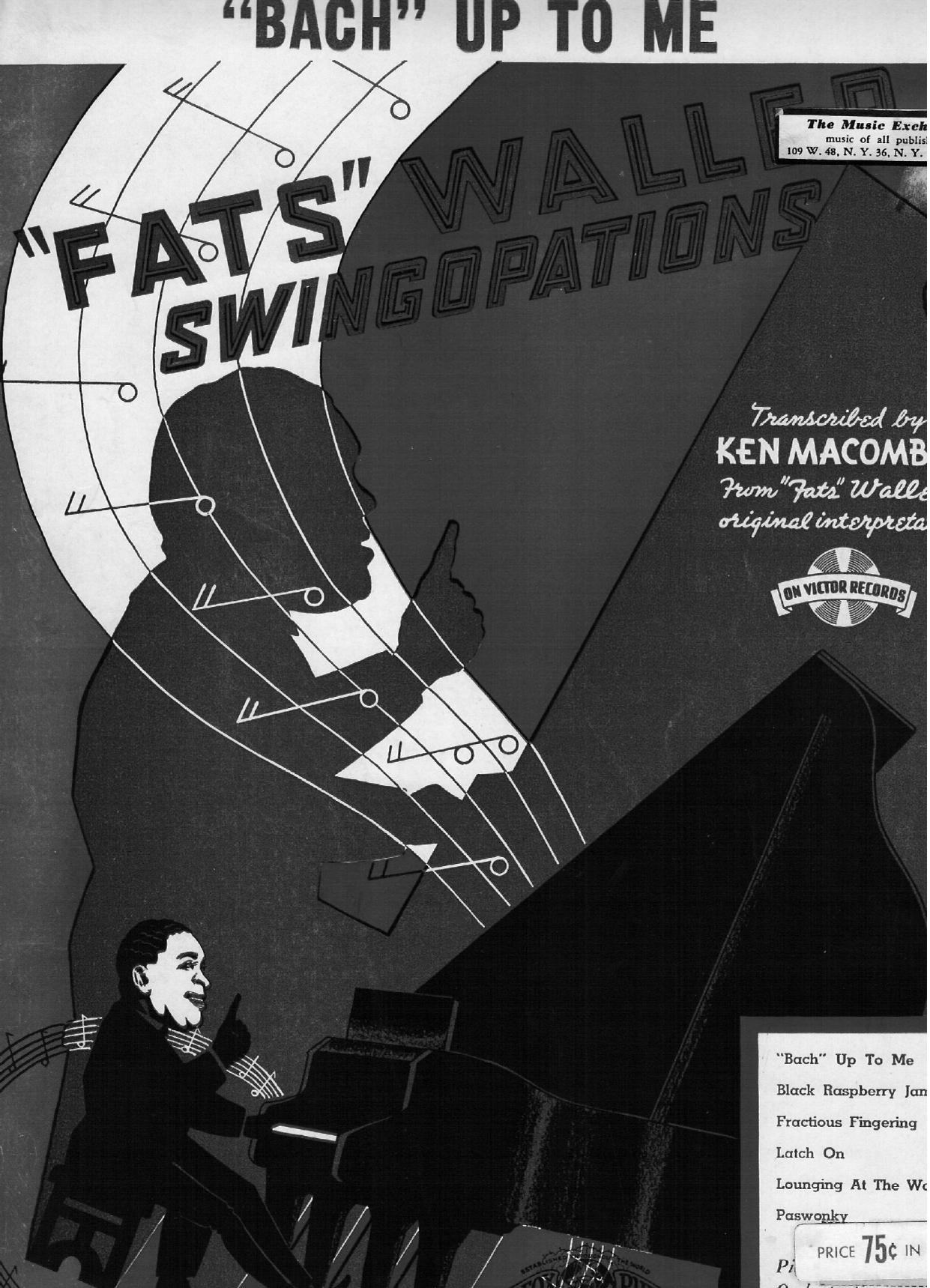
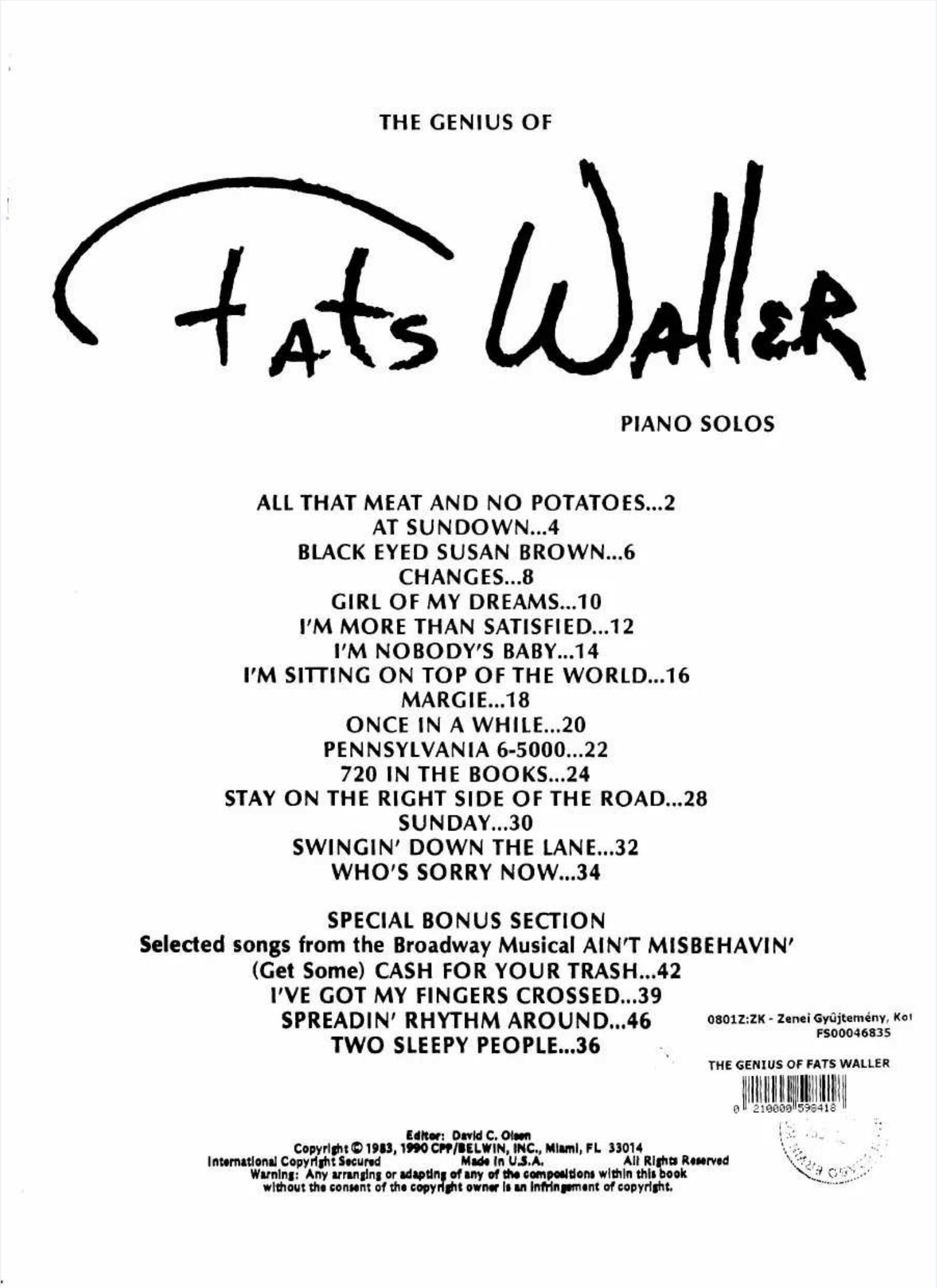

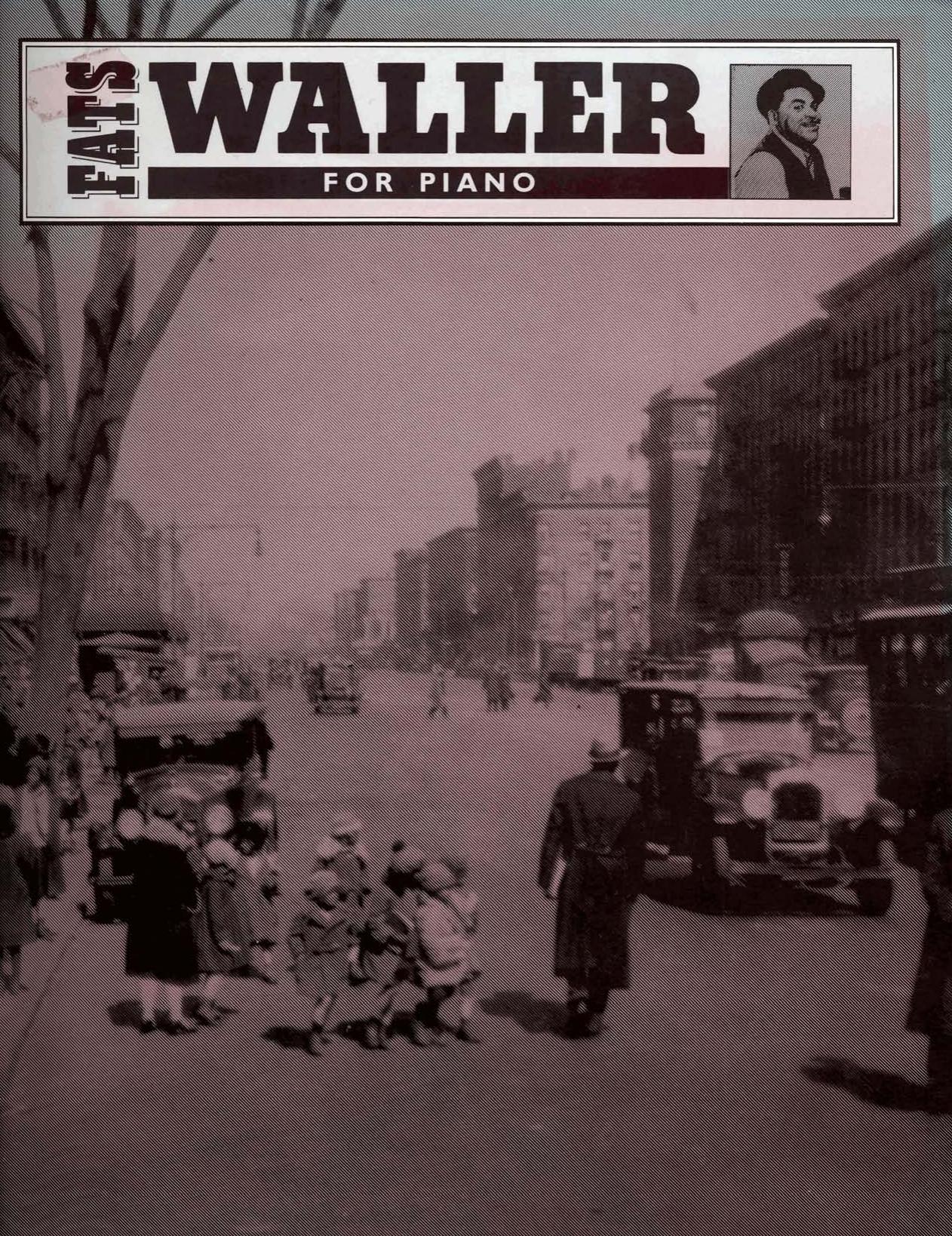
Musical Style and Harmony
Stride Piano Technique
Waller was a master of stride piano, a demanding style that alternates between a bass note (or octave) on beats 1 and 3 and a chord on beats 2 and 4. His left-hand technique was incredibly agile, allowing him to play fast, syncopated rhythms while maintaining a strong swing feel.
Harmonic Innovations
Waller’s harmonic language was advanced for his time. He frequently used:
- Chromatic passing chords (e.g., in “Handful of Keys”)
- Tritone substitutions (e.g., in “Honeysuckle Rose”)
- Extended chords (9ths, 11ths, 13ths)
- Blues-inflected harmonies
Signature Licks and Phrases
Some of Waller’s trademark licks include:
- Octave leaps in the left hand (a stride piano staple)
- Right-hand runs with chromatic embellishments
- Syncopated chord stabs
- Walking basslines with tenth intervals
His improvisations were both technically dazzling and melodically inventive, influencing later pianists like Art Tatum, Count Basie, and Thelonious Monk.
Influences
Waller drew inspiration from:
- James P. Johnson (his primary mentor)
- Willie “The Lion” Smith
- Jelly Roll Morton
- Eubie Blake
- Classical composers (Liszt, Chopin, and Bach, whose contrapuntal techniques he admired)
In turn, Waller influenced:
- Art Tatum
- Count Basie
- Oscar Peterson
- Thelonious Monk
- Dave Brubeck
Legacy
Waller’s impact on jazz is immeasurable:
- He helped bridge ragtime and swing.
- His compositions became jazz standards.
- His humorous, engaging stage presence set a precedent for entertainers like Louis Armstrong and Cab Calloway.
- His recordings remain essential listening for jazz pianists.
Posthumously, Waller’s music enjoyed revivals, most notably in the 1978 Broadway musical Ain’t Misbehavin’, which celebrated his work.
Major Works (Compositions)
Some of Waller’s most famous compositions include:
- “Ain’t Misbehavin’” (1929) – A jazz standard famously performed at the Cotton Club.
- “Honeysuckle Rose” (1929) – A swing classic later covered by countless artists.
- “Handful of Keys” (1929) – A dazzling stride piano showcase.
- “Black and Blue” (1929) – A poignant song about racial discrimination.
- “The Joint is Jumpin’” (1938) – A lively party anthem.
- “Jitterbug Waltz” (1942) – A unique 3/4 time jazz piece.
Filmography
Waller appeared in several films, including:
- “King of Burlesque” (1936) – Performed “I’ve Got My Fingers Crossed.”
- “Hooray for Love” (1935) – Played “Living in a Great Big Way.”
- “Stormy Weather” (1943) – His final film appearance, performing “Ain’t Misbehavin’.”
Discography (Selected Albums)
Waller recorded extensively for Victor Records. Key albums and compilations include:
- “Fats Waller Piano Solos” (1929–1941)
- “The Complete Fats Waller Vol. 1–5” (1922–1943)
- “Fats Waller & His Rhythm: The Middle Years” (1936–1938)
- “The Last Years” (1940–1943)
Documentaries and Videos
Documentaries
- “Ain’t Misbehavin’: The Story of Fats Waller” (BBC, 1986) – A detailed look at his life and music.
- “Fats Waller: The King of Stride Piano” (Jazz Icons series) – Features rare performances.
Performance Videos
- Fats Waller – “Ain’t Misbehavin’” (1929)
- Fats Waller – “Honeysuckle Rose” (1935)
- Fats Waller – “Handful of Keys” (1929)
- Fats Waller – “The Joint is Jumpin’” (1943)
Fats Waller was a musical giant whose contributions to jazz piano, songwriting, and entertainment remain unmatched. His joyful spirit, technical mastery, and harmonic sophistication continue to inspire musicians today. Whether through his timeless compositions or his electrifying performances, Waller’s legacy lives on as a cornerstone of jazz history.
For anyone exploring early jazz, Waller’s recordings are essential listening—his music is not just historically significant but endlessly entertaining. As he once quipped, “One never knows, do one?”—but one thing is certain: Fats Waller was a genius whose music will never go out of style.
